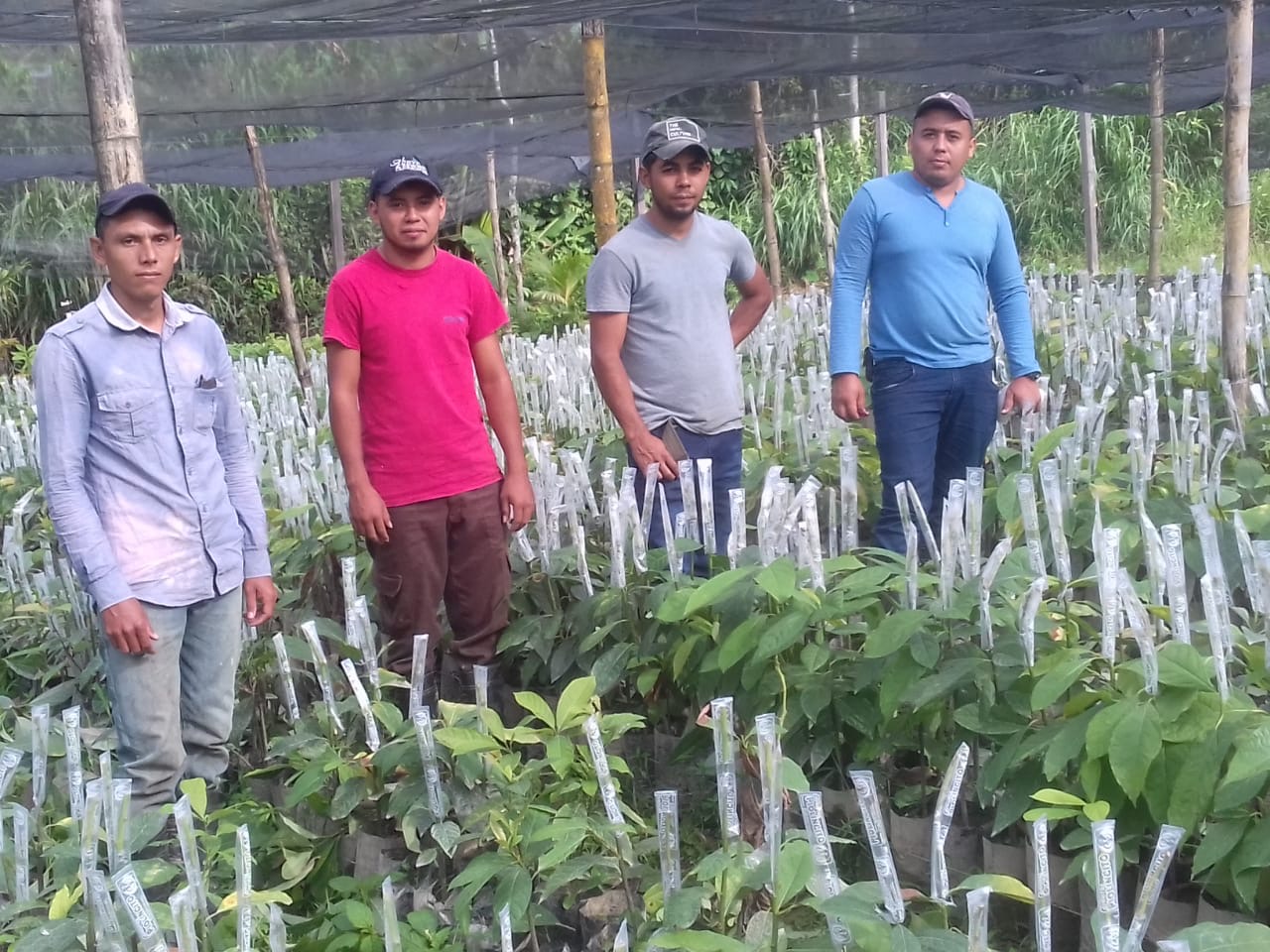

The families are 100% in charge of their land--making all the decisions about what they wish to plant and adding other components from our nurseries (citrus, hardwoods, cash crop alley for turmeric, black pepper, pineapple, avocado, Allspice, cacao, vanilla, ). The Inga Tree Model program has over 200 families waiting to plant alleys. They have seen the results of their relatives and neighbors and many have visited the demo farm to see for themselves how planting trees secures their futures.
The all-Honduran team live in the two river valleys, are farmers themelves, who are known, trusted, and respected in the communities. The families have no debt or loans and are independent after their first pruning in 18-24 months. Not a single family that has adopted the model has reverted to slash-and-burn.
Families “pay it forward” by raising Inga seed stock and helping others with planting. This farmer-to-farmer initiative ensures the natural expansion and lasting success of the system. Inga alley cropping underpins the values needed for meaningful change in the global south.
The most important enabling factor is trust. We achieved that by always doing what we said we would do. Neither Covid-19, hurricanes or droughts have negatively affected the program. Families share their native seed and cooperate to make efficient use of their time. They save 30-40 days of weeding as the trees shade out all weeds. Firewood from the annual pruning is done with machetes and is a valuable resource that is shared/sold/traded by the families themselves. The demo farm has served as a drop-off and collection point for group drying/sales of peppercorns.
The all-Honduran team understood the importace of flexibility on many occasions when flooding or COVID-19 caused plans to change--always having a back-up (mules for seeds distribution or contracting a Caterpillar to clear roads after the twin hurricanes in Nov. 2020). They delivered food and water and transported several dozen villagers to medical facilities.
The Honduran team is the most experienced in the world and has taught all others who are installing Inga alleys. We have facilitated Inga alley replication in 15 countries with farmer/NGO/government groups by providing training at no cost to over 60 groups and providing native seed to many. They know the significance of what they are accomplishing and take great pride in their work. The nursery staff plants the crops that families request.
The program exceeds all expectations because the families are in charge--with tremendous co-operation among them-- like pruning in exchange for firewood, offering complementary skills, and working together spontaneously. They are listened to, respected, and valued.